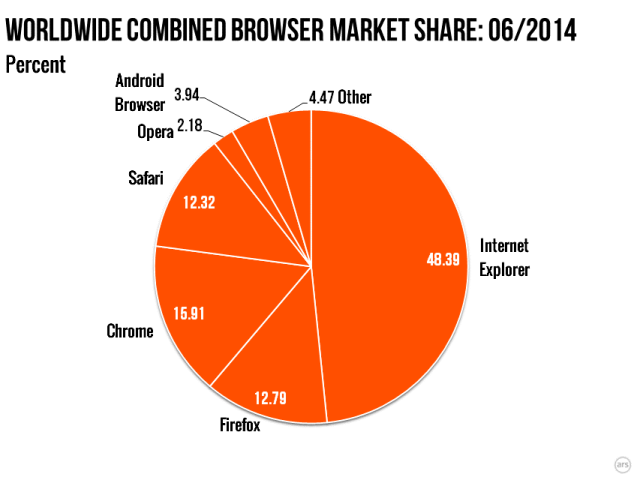
Windows 8.x and Internet Explorer have been growing steadily over the last few months. That growth appeared to come to a screeching halt in June, with both the operating system and the browser ending the month in much the same place they started it.
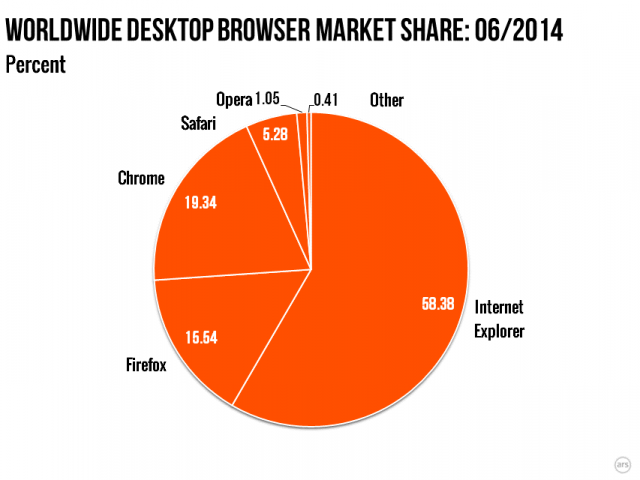
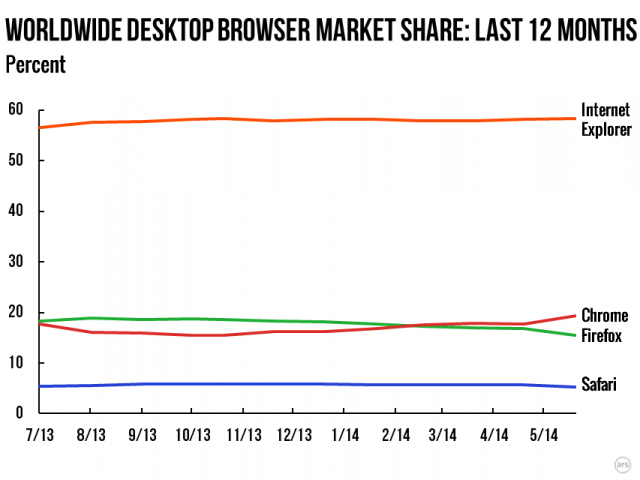
June saw big movements among the second- and third-placed browsers. Chrome was up a substantial 1.61 points, with Firefox falling a hefty 1.21 points. Internet Explorer saw a small increase, up 0.21 points. Those Firefox and Chrome changes are substantial. Although Firefox has been trending downward for some time, and Chrome trending upward, neither has had a swing this big.
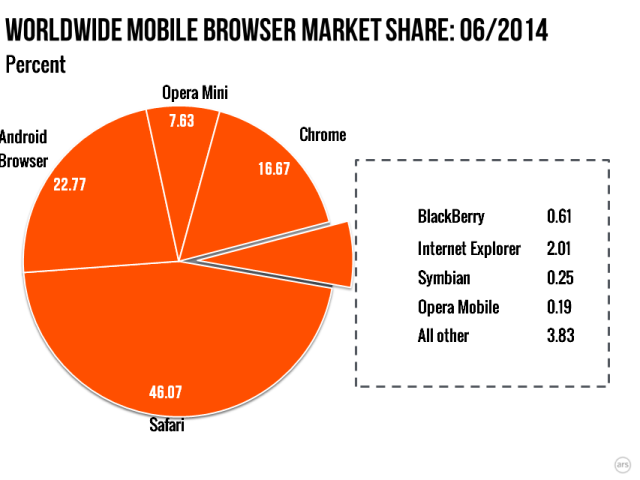
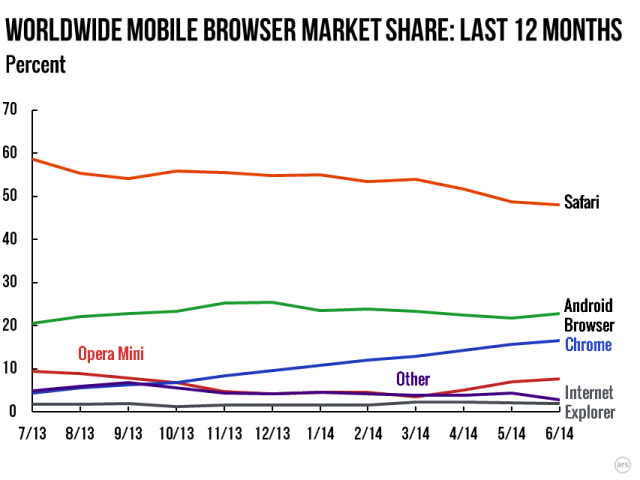
Those kinds of swings are no big deal in the mobile market. Safari continues to cede share to the Android browsers. Apple's browser is down 2.65 points, with Android Browser up 0.9 points, and Chrome 0.88 points. Android's strength in the mobile market is continuing to make its presence felt. Among the also rans, Internet Explorer fell 0.10 points, BlackBerry was up 0.13 points, and Symbian was down 0.03 points.
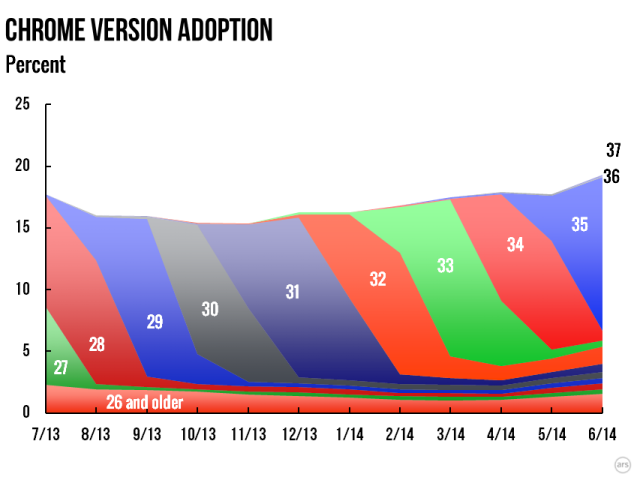
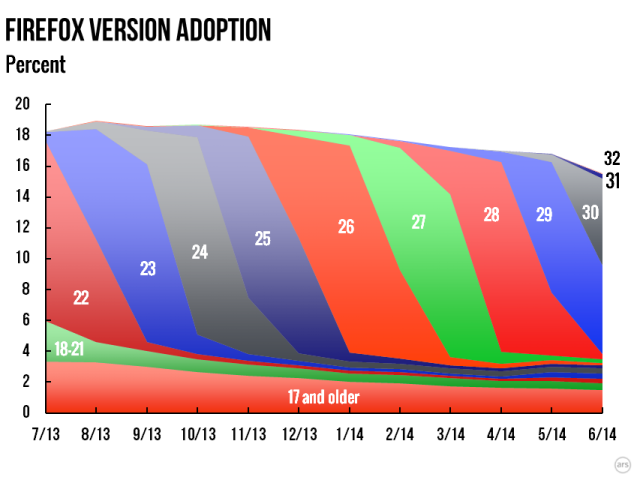
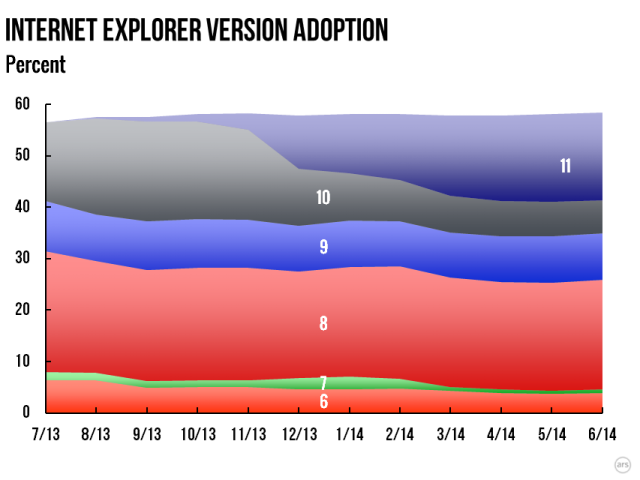
After months of strong growth on the back of automatic updates, Internet Explorer 11 stood still in June. Internet Explorer 7 is virtually wiped out from the Internet, and Internet Explorer 10 has lost most of its users to Internet Explorer 11, but versions 8 and 6 both saw slight upticks, adding 0.35 and 0.26 points, respectively. Broadly speaking, Firefox and Chrome saw their usual upgrade behavior, though Chrome saw small increases (of the order of 0.1 to 0.5 points) across many older versions. Given Chrome's effective automatic updating, the continued low-level presence of these old versions is always something of an oddity; it's not at all obvious how people get stuck on these old versions or why their systems aren't updating. And yet, continued low-level attrition is a repeating pattern.
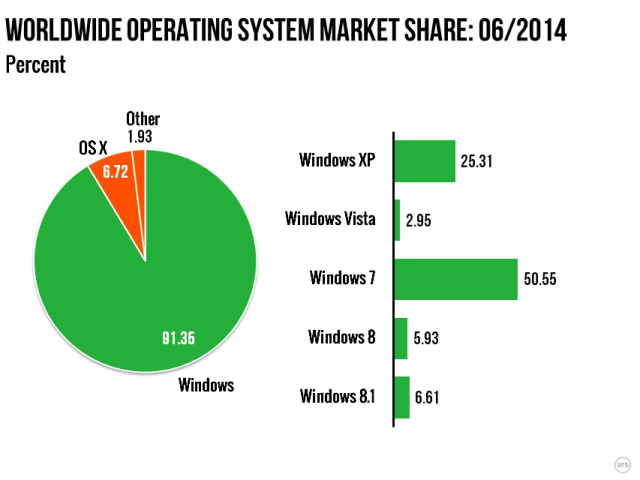
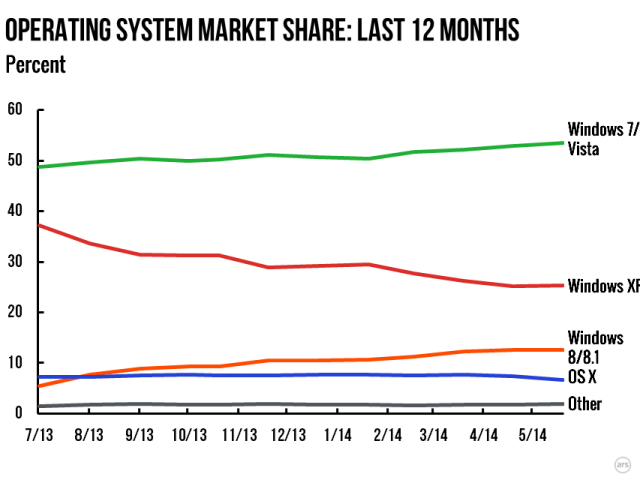
Over the last year, Windows 7 and Windows 8 have both grown, presumably driven by enterprise and consumer upgrades, respectively. Last month Windows 8.x was essentially dead flat, however, down 0.1 points on the month before. Windows XP, which has also been on a downward slide, was essentially unchanged in June, up 0.04 points. The trend over the last year shows just how slowly Microsoft's operating system customers tend to move. The contrast with the browser market couldn't be more evident: changing Windows versions is clearly a major undertaking. What's most surprising is that Windows 8.0 remains widespread. Since May, Windows 8.1 has had more share than 8.0, but that old version has been hovering around 6 percent for eight months now.
reader comments
122